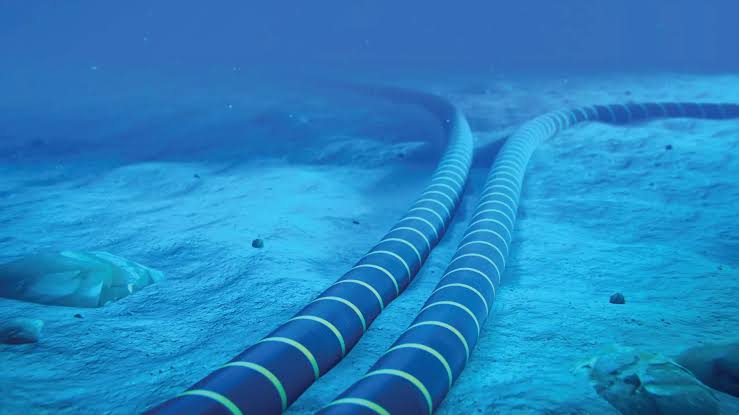Tech
Nigeria seeks joint protection of undersea cables across West Africa

Following the widespread recent service disruption recorded after undersea cable cuts disrupted connectivity in many countries in the region, Nigeria has called for a coordinated and multilateral approach by the West African region to protect shared telecommunications infrastructure and diversify connectivity to ensure uninterruptible connections.
Ripples Nigeria reports that telecommunications companies and banks in Nigeria were recently hit by an internet outage as a result of damage to international undersea cables supplying them with connectivity.
The damage affected major undersea cables near Abidjan in Côte d’Ivoire and caused downtime across West and South African countries. The West Africa Cable System (WACS), the Africa Coast to Europe (ACE), MainOne, and SAT3 cables are affected.
Reacting to this, the Executive Vice Chairman of the Nigerian Communications Commission (NCC), Dr. Aminu Maida in a statement delivered at the 21st West Africa Telecommunications Regulatory Assembly (WATRA) Annual General Meeting (AGM) which held in Freetown, Sierra Leone, from the 19th to 22nd March 2024 called for a joint protection strategy of these assets.
According to a statement from the Commission on Sunday, Maida, whose message was delivered at the WATRA AGM by the Deputy Director, Public Affairs of the Commission, Nnenna Ukoha, stated that the recent submarine cable cuts that resulted in nationwide outages on multiple networks in 12 African countries has raised the urgent need for the subregion to establish a mechanism to protect itself from damage to submarine infrastructure and its attendant impact on the subregion.
READ ALSO:Undersea Cable Cut: NCC says call, data services have been restored
Maida referred to a report by Cloudflare, an IT service management firm, which indicates that about six countries, including four West African countries, were still suffering from the outages caused by the submarine cable cuts, to buttress the call
Highlighting the benefits of a secure telecom infrastructure across the region, the NCC boss said:
“Securing telecom infrastructure is paramount for fostering Foreign Direct Investment (FDI) and enhancing investor confidence in the West African sub-region. The reliability and resilience of telecommunications networks are crucial factors that investors consider when evaluating regional opportunities.
“By ensuring the security of these vital assets, we can attract more investment, spur economic growth, and enhance our competitiveness on the global stage. A secure telecoms infrastructure not only facilitates efficient communication and connectivity but also signals a commitment to safeguarding critical assets essential for business operations.
“This assurance can significantly boost investor confidence and create a conducive environment for sustainable economic development.”
Continuing, he said the impact of events like cable cuts highlights the need for a coordinated, multilateral approach to protecting shared infrastructure across our member nations.
Maida, therefore, proposed “the urgent need to set up a framework for joint monitoring, risk mitigation, and emergency response procedures for the submarine cables that pass through the sub-region.
By: Babajide Okeowo
Join the conversation
Support Ripples Nigeria, hold up solutions journalism
Balanced, fearless journalism driven by data comes at huge financial costs.
As a media platform, we hold leadership accountable and will not trade the right to press freedom and free speech for a piece of cake.
If you like what we do, and are ready to uphold solutions journalism, kindly donate to the Ripples Nigeria cause.
Your support would help to ensure that citizens and institutions continue to have free access to credible and reliable information for societal development.
























